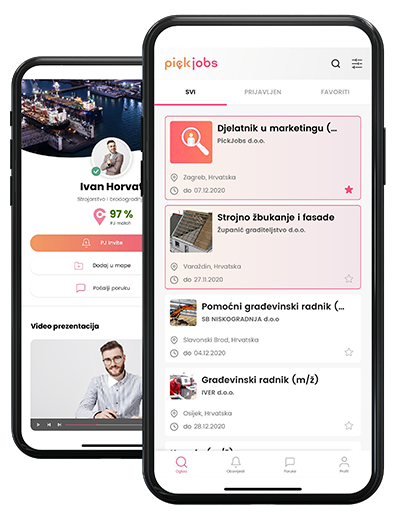Burnout is the result of long-term stress. It starts with a lack of energy that gradually turns into a chronic feeling of exhaustion. You feel apathy towards your work, which you were previously proud of. Your productivity starts to drop more and more. You invest more time and effort in your work, but the sense of accomplishment is missing. You feel even more tired. It's like you're burnt out.
Burnout is a syndrome that many people have encountered during adaptation to remote work, but it is also a possible consequence of being overloaded with obligations in private life. But is there a positive side to burnout?
Burnout is not exclusively a result of remote work
Burnout was mostly talked about in the context of the pandemic and working from home. At the beginning of the pandemic, everyone was so busy adjusting that they had no time to worry about the long-term consequences. Conversations about burnout during the pandemic were also limited to certain occupations. Namely, when we talk about burnout, we mostly think about the syndrome that affects doctors, teachers and office workers. In doing so, we ignore, for example, the burnout of hairdressers or car mechanics. Although people experience burnout in other roles as well, discussions of burnout often seem to focus on occupations associated with a certain educational or socioeconomic level.
A member of Women in Adria states that opening your own company can also lead to burnout. "Yes, the consequence was the opening of my own company. Now instead of working from 8-4 in the morning, I work from 8-16, except on Fridays when we are off."
Burnout of unemployed persons
Burnout is most often associated with work and is perceived as a phenomenon that affects people in the workplace. The World Health Organization (WHO) states that burnout "specifically refers to phenomena in a professional context and should not be applied to describe experiences in other areas of life." Despite this, for some, the fact that they do not have a job will be more stressful than any job, and they may be exposed to stress in their private lives for a long time.
Burnout in private life
Pandemic work from home has blurred the line between professional and private life. The effects of stress have become visible outside the workplace as well. Taking care of children and the household along with accumulated work obligations lead to chronic stress that can result in burnout. Although burnout is most often related to work, its cause should also be found in stressors that affect us outside of working hours. "Your body does not recognize if your chronic stress is related to your occupation," reminds psychologist Samra Rajvinder. If you don't choose a rest day, your body will choose one for you.
The upside of burnout is recognizing that it's time for a change
Our current burnout moment can provide us with an opportunity to reconsider our roles at work, but also the role of work itself in our lives on a personal and social level. "It's only good if you understand what's happening, allow yourself to accept it and start acting. In the sense of easing obligations, taking a break, delegating tasks, calling for cooperation (help). It is important to clearly state how we feel and why, and to ask for understanding in the obligations we are given, deadlines and the like. It's good if it makes us all aware to slow down and look at life from a different perspective and decide to change something and slow down. It is also good if we realize that the workplace is not for us, because by doing so we are doing ourselves and others a favor", advises Daria Antonović.
In addition to annual vacations and the formation of healthy habits, the problem of burnout needs to be solved on an organizational or systematic level, sometimes even by changing the work environment itself. More frequent breaks may solve the problem in the short term, but if a person returns to the same environment in which they experienced burnout, it is possible that they will continue to suffer. Addressing burnout systematically could mean reducing workload, reallocating resources, or rethinking workplace hierarchies. Psychologist Michael Leiter suggests greater autonomy and freedom for workers and changing their roles so that the job fits the person instead of the person fitting the job.
Making changes at the system level is difficult, but returning to work after the corona represents a rare opportunity to do so as we are currently shaping the "new normal". If we look at burnout that way, we can say that burnout could not have come at a better time.
You often enter terms into the search engine:
- Seasonal jobs Croatia
- Seasonal jobs with accommodation
- Work from home Croatia
- Online jobs
- Jobs abroad
PickJobs offers you all of the above. Contact us via the contact form and we will help you get the job you want.

 Croatia
Croatia Bosnia and Herzegovina
Bosnia and Herzegovina Serbia
Serbia Crna Gora
Crna Gora North Macedonia
North Macedonia Ukraine
Ukraine Albania
Albania Kosovo
Kosovo Austria
Austria Deutschland
Deutschland Switzerland
Switzerland









